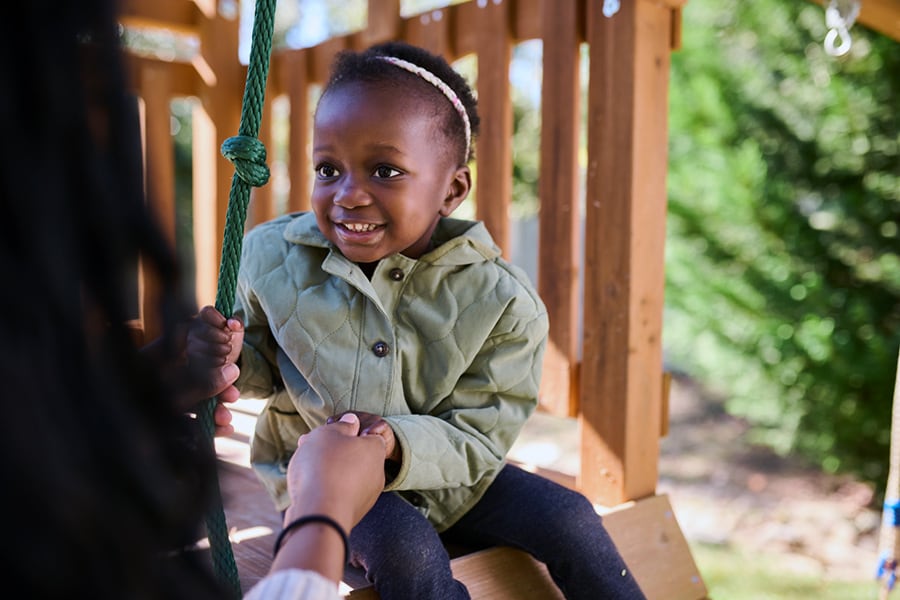10 Ways Families Can Fight Off the Winter Blues

The days are shorter, the nights are longer, it’s cold outside and we’re all spending more time indoors. It must be winter. If you or your child tend to feel down, have less energy or have a tough time coping during the winter, you’re not alone. Read on for ways families can fight off the winter blues.
10 ways families can boost their mental health during winter
- Move your body. Don’t let colder days stop you from being active! Physical activity can help lower stress levels and improve mental health. And, if you’re active outside, sun exposure helps lift your energy levels, boost your immune system and keep your body strong with Vitamin D. Try this winter activities BINGO card for indoor and outdoor activity ideas!
- Eat balanced meals and snacks. Fueling your body and mind is important to help give you the energy needed to get through the day. Start off the day right with a balanced breakfast. Or try adding one of these immunity-boosting foods to your next meal.
- Maintain simple routines. This creates a sense of predictability and allows the whole family—kids and grown-ups alike—to feel comforted and secure. Maintaining routines can be as simple as having consistent mealtimes, wake times and bedtimes.
- Set screen time limits. Too much screen time can negatively affect your mental health, diminish quality of sleep, get in the way of family time and reduce physical activity. An easy way to cut down on screen time (and get a better night’s sleep) is to power down screens an hour before bed.
- Regularly check in and talk openly about feelings. When we have regular conversations about feelings, we teach kids that it’s normal and OK to have feelings and express them, so they’re less likely to bottle them up. Try using our conversation starters when in the car or during a family meal.
- Teach and practice healthy coping strategies everyone can use to cope with feelings and improve moods, like taking a few deep breaths, listening to music or journaling.
- Make time for fun. It can be hard to find joy when you’re feeling down. But we can (and often do!) feel more than one feeling at a time. Whether it’s playing a game or going for a family bike ride, taking moments to have fun can be a nice break for the entire family.
- Practice gratitude. Studies show that gratitude has a positive impact not only on our mental health, but on our physical health as well. Consider starting a daily gratitude practice, like talking about one thing you’re grateful for before bed each night.
- Connect with family and friends. The winter season, and especially the holidays, can be a tough time of year. To help with feelings of isolation or loneliness, try to spend time connecting with loved ones. It can be as simple as running an errand together or checking in over the phone.
- Get help. It’s normal for everyone to feel down from time to time, but there’s a difference between occasionally feeling down and experiencing clinical depression. It’s important to consider the frequency, intensity and duration of your symptoms. If you’re concerned that your child may be struggling with depression, or you’re simply unsure, talk to your child’s pediatrician or a licensed mental health professional.
Take any thoughts of suicide seriously. Call or text 988 if you or a loved one are experiencing thoughts of suicide, self-harm or any mental health crisis.



